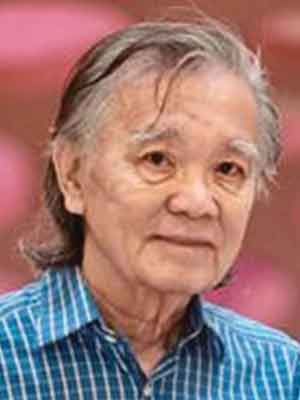 Wong Phui Nam, a trailblazer in Malaysian-Singaporean anglophone literature, passed away in his sleep on Monday, September 26, 2022. He was 87 years old.
Wong Phui Nam, a trailblazer in Malaysian-Singaporean anglophone literature, passed away in his sleep on Monday, September 26, 2022. He was 87 years old.
Wong was introduced to the English language at the age of nine, and itproved to be perhaps the most significant experience in his life. It immediately captured the boy’s imagination by exposing him to western culture, especially classical music. His love for western classical masters such as Mozart and Beethoven and the desire to emulate them drew him to the writing of poetry. He gravitated towards English because of its rich heritage and also because, being the child of a migrant in a largely Malay-speaking world, he did not consider any of the local languages, including Cantonese, spoken at home, as his own.
Wong began writing at age 14, with “secret ambitions to being a tropical variant of Wordsworth or Keats” (Quayum Citation2007). But he relinquished such fantasies and discovered the possibility of writing Malayan (later Malaysian) poetry in English after enrolling at the University of Malaya in Singapore in 1955. Inspired by his university peers, he began to realize his literary dream by editing and publishing in student magazines such as Write and The New Cauldron and co-editing the first anthologies of Malayan English poetry, Litmus One and 30 Poems, both in 1958.
Wong eventually went on to publish six volumes of poetry and two plays. His poetry collections include How the Hills Are Distant (1968), Remembering Grandma and Other Rumours (1989), Ways of Exile (1993), Against the Wilderness (2000), An Acre of Day’s Glass: Collected Poems (2006), and The Hidden Papyrus of Hen-taui (2013). Bitten by the playwriting bug at an advanced age, he also published Anike (2006) and Aduni (2008), adaptations of two Greek plays, Antigone and Medea. They exploit themes of injustice, pride, and the threats of tyranny in Malaysian political life.
Wong encountered many challenges throughout his literary career. He grew up as an orphan in his stepmother’s home bereft of culture and focused on “nothing else but an overriding concern over bodily survival”. To take up writing poetry in such an ambience required considerable fortitude and zeal. Later, when he entered university, his professors showed apathy or even hostility towards young aspiring writers in English like Wong because they didn’t want their colonized Asian students to fiddle with Shakespeare’s language. He also encountered many agonizing challenges when, in 1967, Malaysia adopted Malay as the national language, relegating anglophone writing to a marginal status and refusing recognition or support to writers in languages other than Malay. But his greatest challenge came from the poetic medium itself, as he had to constantly make over the English language through infusion of local spirit and local colour to create an authentic Malaysian voice.
As a poet, Wong was a dedicated craftsman: “I could spend hours and days working on lines as a jeweller would on a gem” (Quayum Citation2007 89). But he also considered himself a worker of the inner life, trying to protect the soul from entropy through exposure to what he saw as the moral wasteland of Malaysian society.
Wong Phui Nam will be enormously missed by all who knew him.
With his departure, Malaysian-Singaporean and world literature have lost a maestro whose poetry, Shirley Lim (Citation2007) suggests, is “breathtakingly gorgeous and memorable”.
Correction Statement
This article has been republished with minor changes. These changes do not impact the academic content of the article.
References
- Lim, Shirley Geok-Lin. 2007. “‘Sparkling Glass’ Review of An Acre of Day’s Glass: Collected Poems, Wong Phui Nam.” Quarterly Literary Review Singapore, January. http://www.qlrs.com/critique.asp?id=580
- Quayum, Mohammad A. 2007. “Wong Phui Nam.” In Peninsular Muse, edited by Mohammad A. Quayum, 71–94. Oxford, Bern: Peter Lang.
